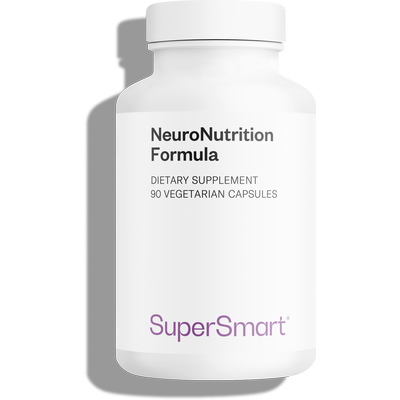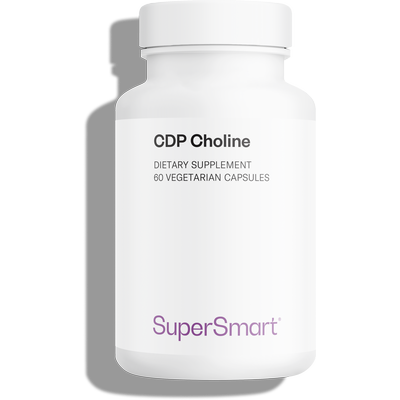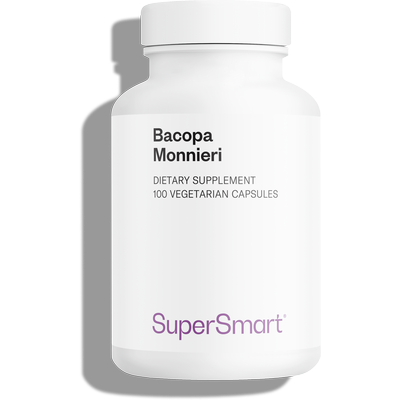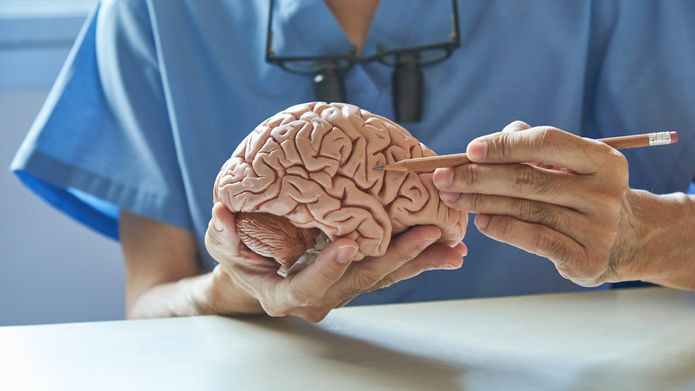Memory: disturbing experiments & life-saving ingredients
Memories transmitted by injection? Worms capable of remembering a skill after being decapitated? Behind these experiments, research into memory is progressing, showing that brain nutrition has a bright future ahead of it.

Scientific research on memory that has left its mark
Planaria: can a memory be transferred by ingestion?
The workings of the brain and memory have fascinated the general public and the scientific community for decades.
Among the most disturbing experiments on this subject is one carried out in the 1960s on planaria, which holds its share of surprises...
Planaria are small flatworms capable of rapid regeneration.
Scientist James V. McConnell sought to demonstrate that planaria that had learned a behaviour could transmit the 'memory' of this action to other individuals in an unexpected way: by being crushed and then ingested by their fellow planaria.
This gave rise to the idea of a memory that could be transferred by biological substances. However, the methods used and the results obtained in this study were widely criticised (and still are today) for lacking scientific rigour.
Injecting messenger RNA (mRNA): a way of implanting a memory in the brain?
More recently, in 2018, neurobiologist David Glanzman from UCLA reignited the debate. He injected mRNA extracted from sea snails (Aplysia) that had learned a behaviour into their naïve counterparts (those not subjected to any specific training) (1).
After observation, the researchers found that the latter showed similar reactions to the trained animals, suggesting that mRNA could play a role in the storage and transfer of memory.
These results have aroused great interest among scientists. However, they remain controversial, not least because of the complexity of the mechanisms underlying learning and memory. What's more, it is difficult to extrapolate this data to human beings.
Animal experiments: leads, but no confirmation
Naturally, other studies have looked at the mechanisms involved in memory. In 2013, planarian worms were in the news again (2).
This time, they were taught to overcome their fear of light in order to feed. Once they had learned their lesson, the worms were cut in half.
Thanks to their impressive capacity for regeneration, each half was able to ‘regrow’ the missing part in just a few days.
The result: each of the two new worms was able to expose itself to light in search of food. They had therefore retained the memory of the learning they had previously acquired!
Although these experiments provide a number of clues to understanding cerebral plasticity, they do not validate the hypothesis of a transmissible memory in the strict sense of the word.
Memory is a complex biological process, combining chemical, genetic and environmental interactions.
What we know about memory and recall today
A matter of neurons
Although certain clinical studies have given rise to much debate, current knowledge of memory is nonetheless based on solid foundations.
We now know that memories are not stored in a single place in the brain (3).
They are generated by a complex network of neurons, whose connections evolve over time and throughout life. This is known as synaptic plasticity.
The clearly established role of messenger RNA (mRNA)
Mechanisms involving mRNA have been identified, this time without controversy. It plays a key role in the synthesis of proteins essential for memory (4).
Research has shown that high neuronal activity triggers the transcription of certain genes, enabling the local production of proteins involved in the construction of synapses. It therefore contributes to synaptic plasticity.
Epigenetics and modulation of neuronal activity
Chemical modifications can bind to DNA and act as switches, activating or deactivating certain memory-related genes.
These so-called epigenetic marks can influence the way neurons function over the long term (5). This would explain why some memories persist for many years.
Memory traces, a neuronal representation of memories
Specific proteins such as PKMζ (protein kinase M-zeta) or CREB (cAMP response element-binding protein) are involved in the formation of memory traces, meaning ultimately memories (6).
They act as biochemical switches, triggering a number of mechanisms that help strengthen synapses and therefore to memorise certain things.
Brain nutrition: plants and nutrients to support cognitive functions
Bacopa monnieri: an Ayurvedic plant for the memory
Bacopa monnieri has been used for centuries in Ayurvedic medicine.
It is thought to have a positive effect on the cerebral system, improving both short-term and long-term memory (7). It may help improve concentration and memory while also aiding relaxation.
Bacopa monnieri supports peripheral blood microcirculation and contributes to good blood flow, thus promoting brain irrigation.
It also contains large quantities of antioxidants. Antioxidants help combat the oxidative stress responsible for the premature ageing of cells, particularly brain cells.
To take advantage of these benefits, you can consume it in the form of a food supplement.
![]() Discover Bacopa Monnieri supplement, an extract standardised to 20% bacosides.
Discover Bacopa Monnieri supplement, an extract standardised to 20% bacosides.
Choline: an essential precursor of acetylcholine
Choline is an essential nutrient and precursor of acetylcholine. Acetylcholine is a neurotransmitter involved in memory and learning processes (8).
On an organic level, acetylcholine promotes communication between neurons and helps strengthen their connections, helping the brain to store memories.
Choline also contributes to the body's normal metabolism of homocysteine, an amino acid whose stable levels help maintain healthy cognitive functions.
Choline is naturally present in food. But it is also possible to supplement its intake.
![]() Discover the CDP Choline food supplement, which provides 500 mg of choline per daily dose.
Discover the CDP Choline food supplement, which provides 500 mg of choline per daily dose.
Adopt a synergistic approach to brain plasticity
It is also worth considering brain health as a whole by providing the body with several substances that are beneficial to the brain and cognitive function.
Some formulas combine substances that have been studied for their effects on brain ageing, mRNA production, acetylcholine synthesis or the supply of energy to the brain.
They are therefore part of a genuine cerebral nutrition approach.
![]() Discover NeuroNutrition Formula, based on 7 carefully selected substances.
Discover NeuroNutrition Formula, based on 7 carefully selected substances.
SUPERSMART ADVICE
References
- Bédécarrats A, Chen S, Pearce K, Cai D, Glanzman DL. RNA from Trained AplysiaCan Induce an Epigenetic Engram for Long-Term Sensitization in Untrained Aplysia. eNeuro. 2018 May 21;5(3):ENEURO.0038-18.2018. doi: 10.1523/ENEURO.0038-18.2018. PMID: 29789810; PMCID: PMC5962046.
- Shomrat T, Levin M. An automated training paradigm reveals long-term memory in planarians and its persistence through head regeneration. J Exp Biol. 2013 Oct 15;216(Pt 20):3799-810. doi: 10.1242/jeb.087809. Epub 2013 Jul 2. PMID: 23821717.
- Shomrat T, Levin M. An automated training paradigm reveals long-term memory in planarians and its persistence through head regeneration. J Exp Biol. 2013 Oct 15;216(Pt 20):3799-810. doi: 10.1242/jeb.087809. Epub 2013 Jul 2. PMID: 23821717.
- Sudhakaran IP, Ramaswami M. Long-term memory consolidation: The role of RNA-binding proteins with prion-like domains. RNA Biol. 2017 May 4;14(5):568-586. doi: 10.1080/15476286.2016.1244588. Epub 2016 Oct 11. PMID: 27726526; PMCID: PMC5449092.
- D'Urso A, Brickner JH. Mechanisms of epigenetic memory. Trends Genet. 2014 Jun;30(6):230-6. doi: 10.1016/j.tig.2014.04.004. Epub 2014 Apr 26. PMID: 24780085; PMCID: PMC4072033.
- Patel H, Zamani R. The role of PKMζ in the maintenance of long-term memory: a review. Rev Neurosci. 2021 Feb 8;32(5):481-494. doi: 10.1515/revneuro-2020-0105. PMID: 33550786.
- Roodenrys S, Booth D, Bulzomi S, Phipps A, Micallef C, Smoker J. Chronic effects of Brahmi (Bacopa monnieri) on human memory. 2002 Aug;27(2):279-81. doi: 10.1016/S0893-133X(01)00419-5. PMID: 12093601.
- Maurer SV, Williams CL. The Cholinergic System Modulates Memory and Hippocampal Plasticity via Its Interactions with Non-Neuronal Cells. Front Immunol. 2017 Nov 8;8:1489. doi: 10.3389/fimmu.2017.01489. PMID: 29167670; PMCID: PMC5682336.
Keywords
16 Hours
Great service and lots of information
Great service and lots of information
Gabi
3 Days
Service Satisfaction
I’m satisfied with the service; it fulfilled what it set out to do.
Anfhony Abreu
6 Days
Original product and fast delivery
Original product and fast delivery. I haven't started it yet, but will do soon.
Vincenza Catania
9 Days
Good quality
Good quality. Good service.
Leonel Guzman
11 Days
Top!!!!!!!!
Top!!!!!!!!
Michael
13 Days
Excellent!
Products are great and delivered fast!
PARDINI Debora
14 Days
From order to receive the product
From order to receive the product, the process is smooth & fast. It’s good to customers.
WONG Mei Ling
15 Days
Fast delivery
very quick delivery to italy. product is good.
Customer
16 Days
Prompt delivry !!👍
Prompt delivry !!👍
SWEET Christine
16 Days
Good delivery and flawless quality
AS far as delivery and the visual quality are concerned, Supersmart is excellent. I will not comment on the efficacy of the products themselves, since that is only possible over a longer period and in a large customer base compared to people who do not consume a particular product.
Roger De Backer
17 Days
Perfect services
Perfect services, perfect support, great articles about products
Michaela Alali Beitlová
18 Days
Great experience and effective supplements
I’ve purchased many types of supplements from this company over the course of years to treat a few issues, and I’m satisfied with their quality. After using them consistently for a period of time, I can say they met my expectations and I could feel real health benefits that built up over time. Deliveries are always quick. I recommend this company to anyone looking for high-quality supplements.
Giordano
18 Days
Es hat alles gestimmt
Es hat alles gestimmt. Top
marina thieme
21 Days
Great product
Great product, but still evaluating its effectiveness. Highly recommended. Super efficient delivery.
Chalise
25 Days
Quality products
Quality products , efficient and effective customer service. You can’t ask more
CLaudia
of experience
your money back
##montant## purchase






